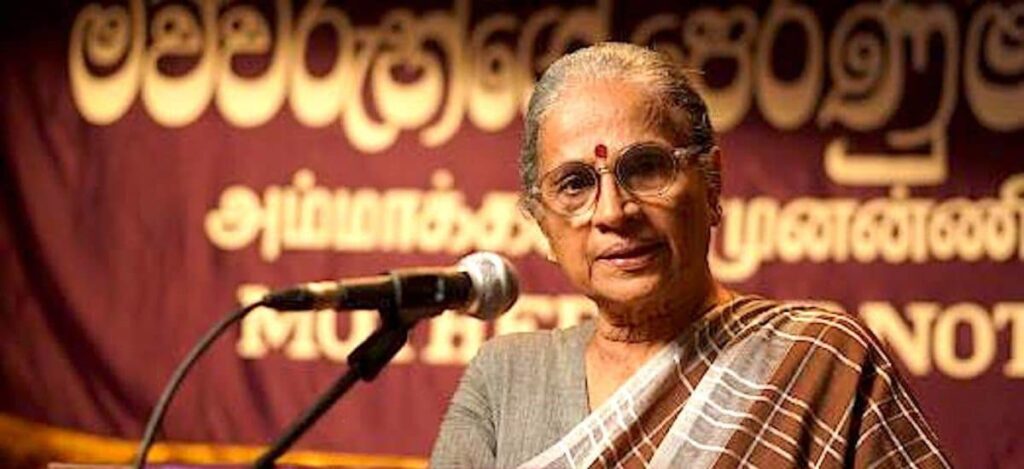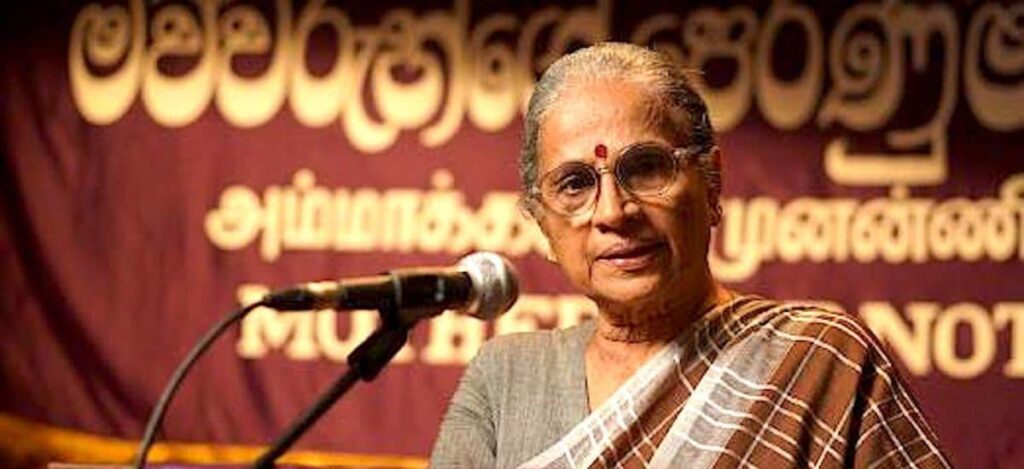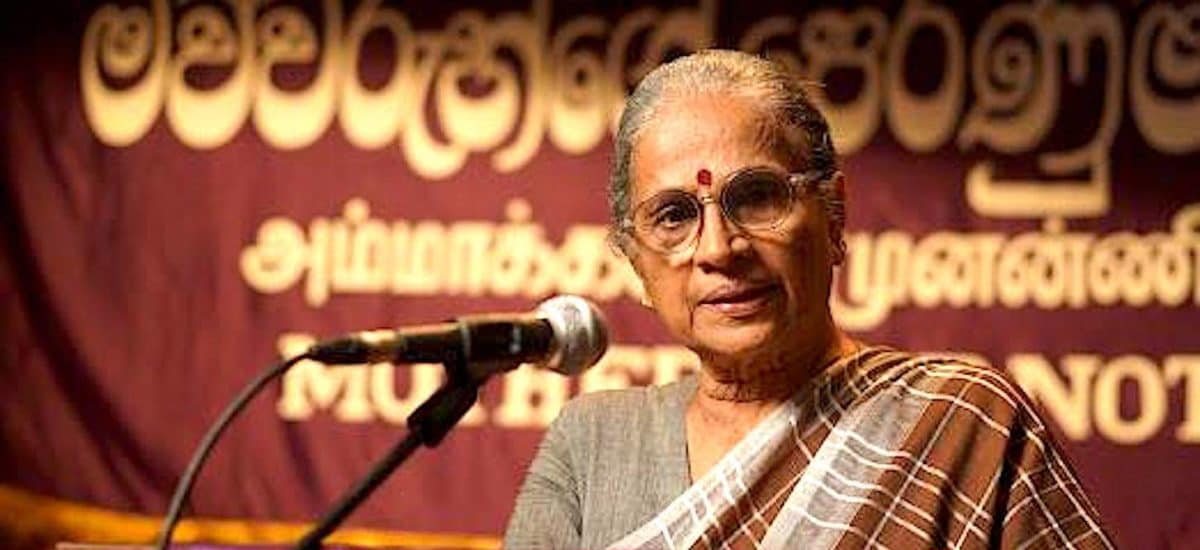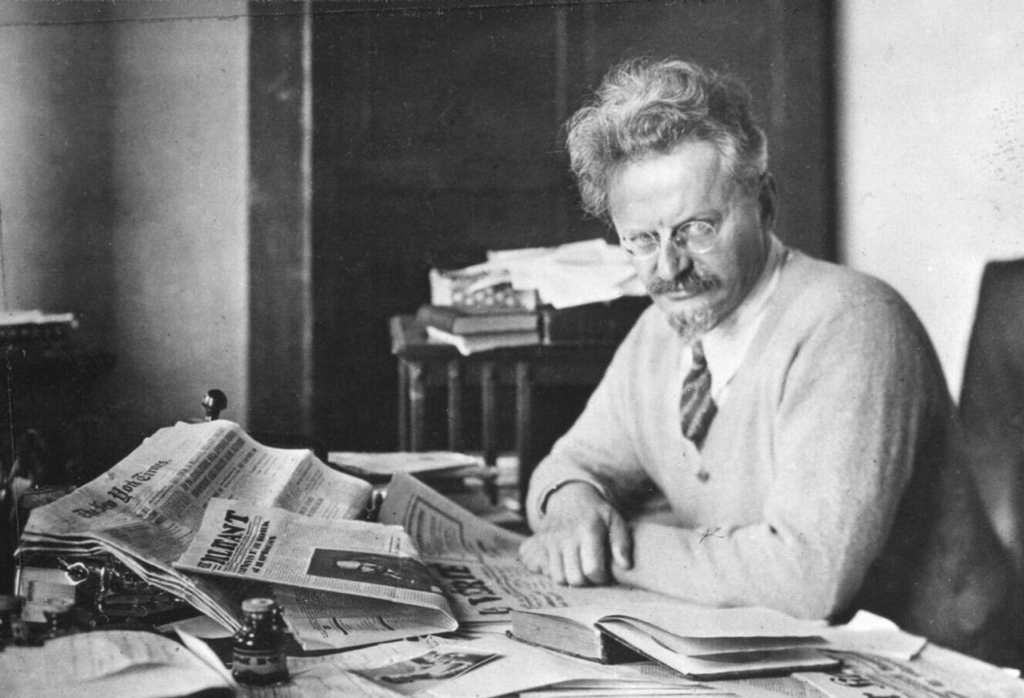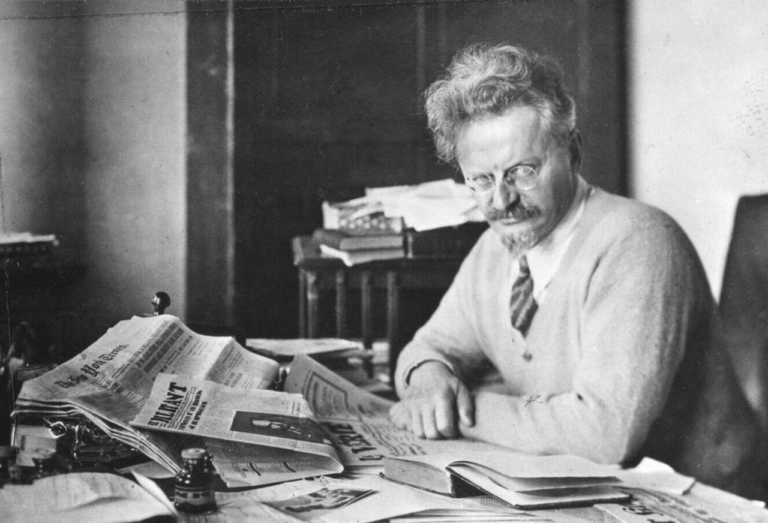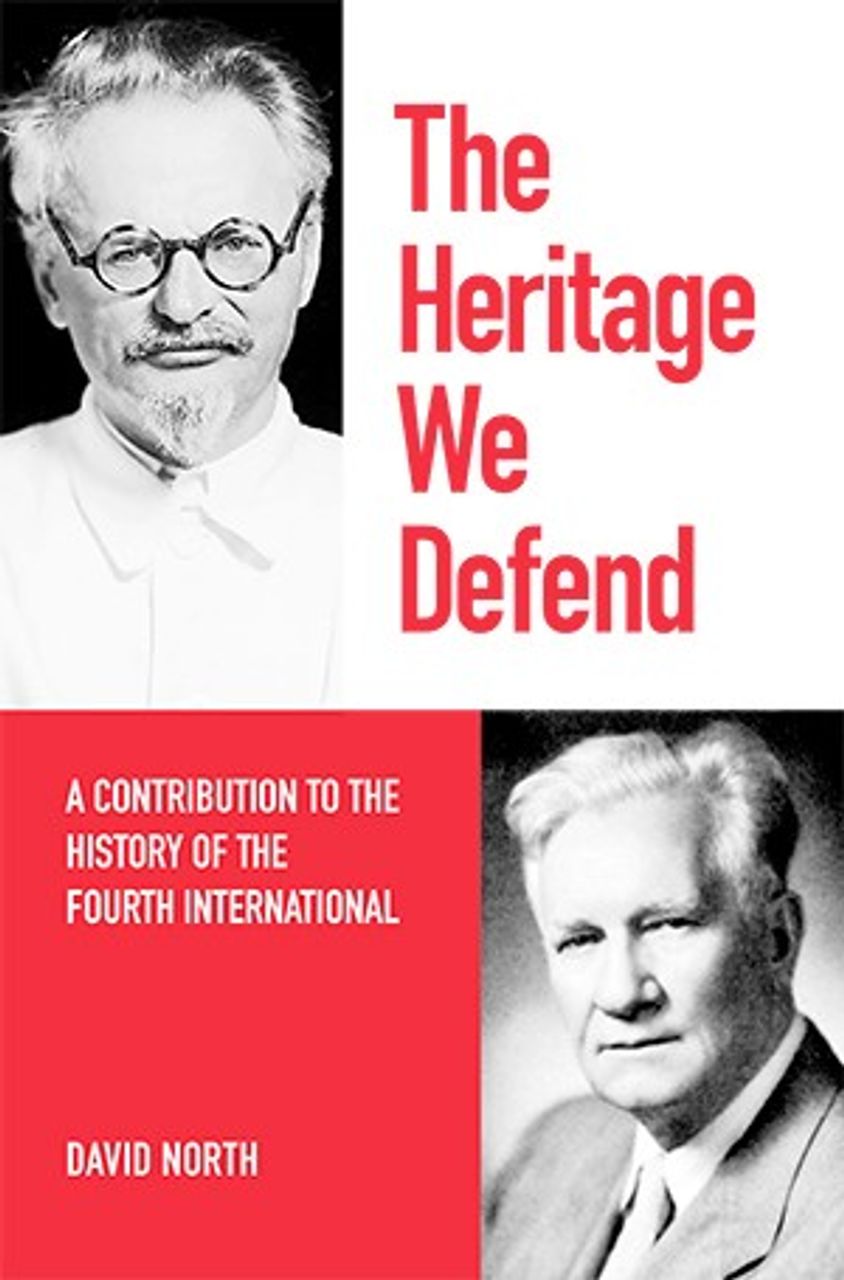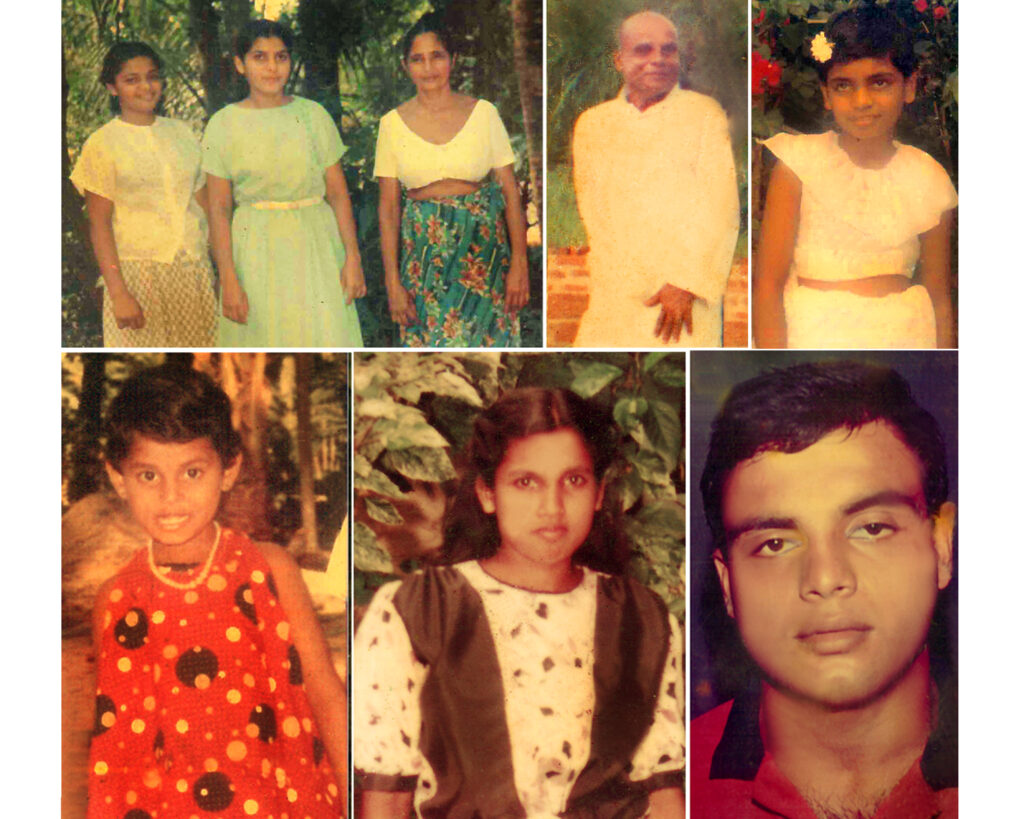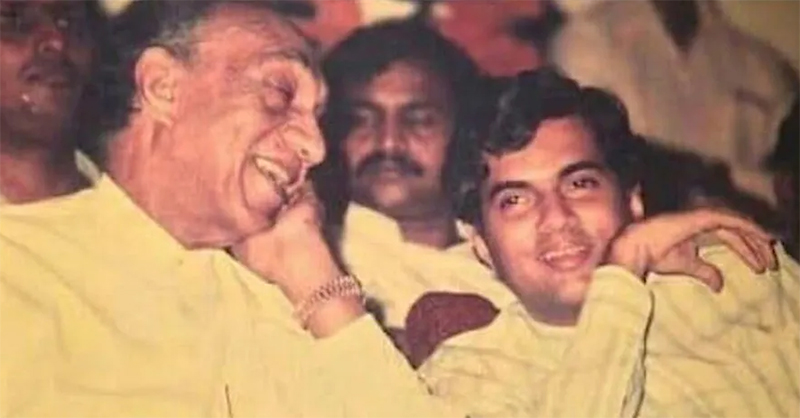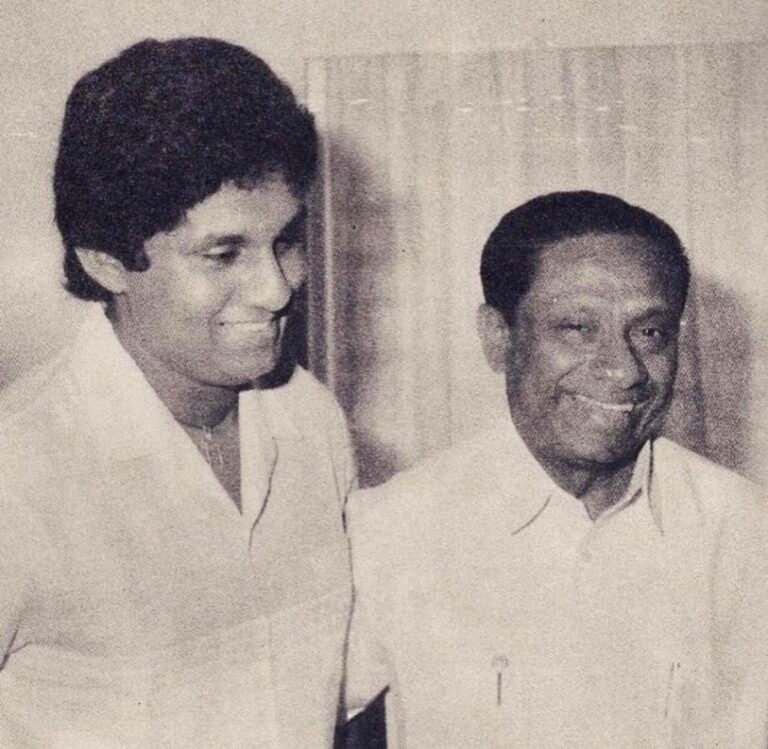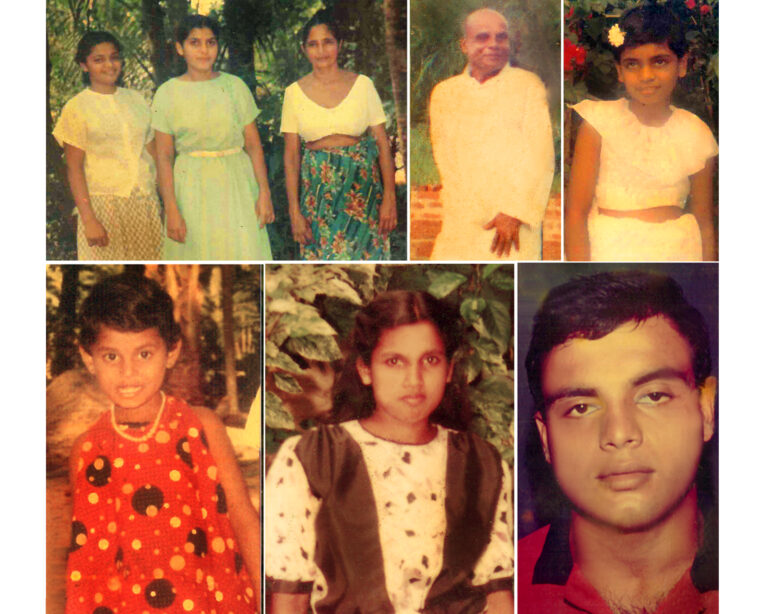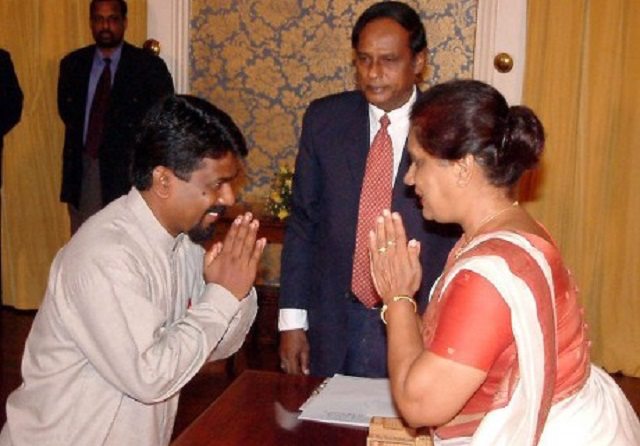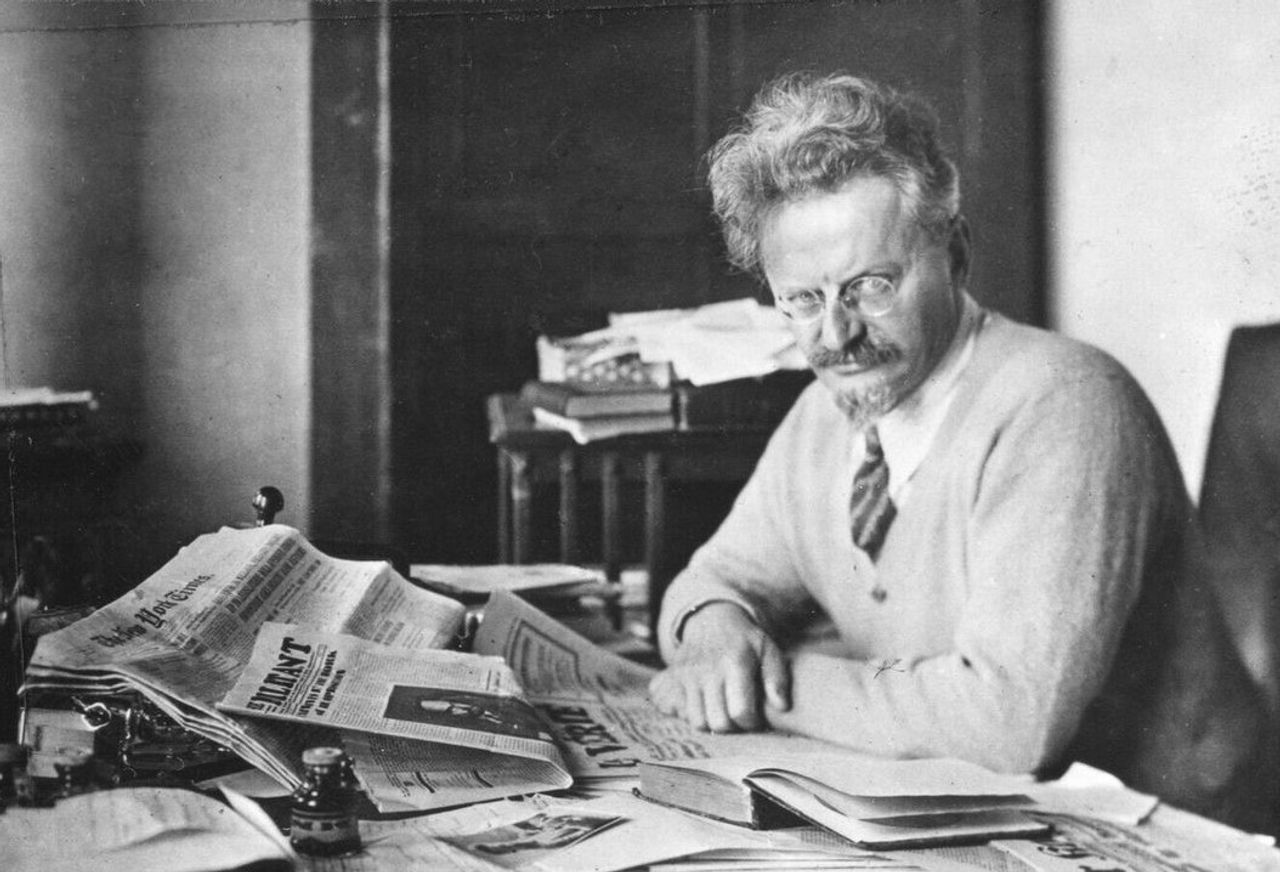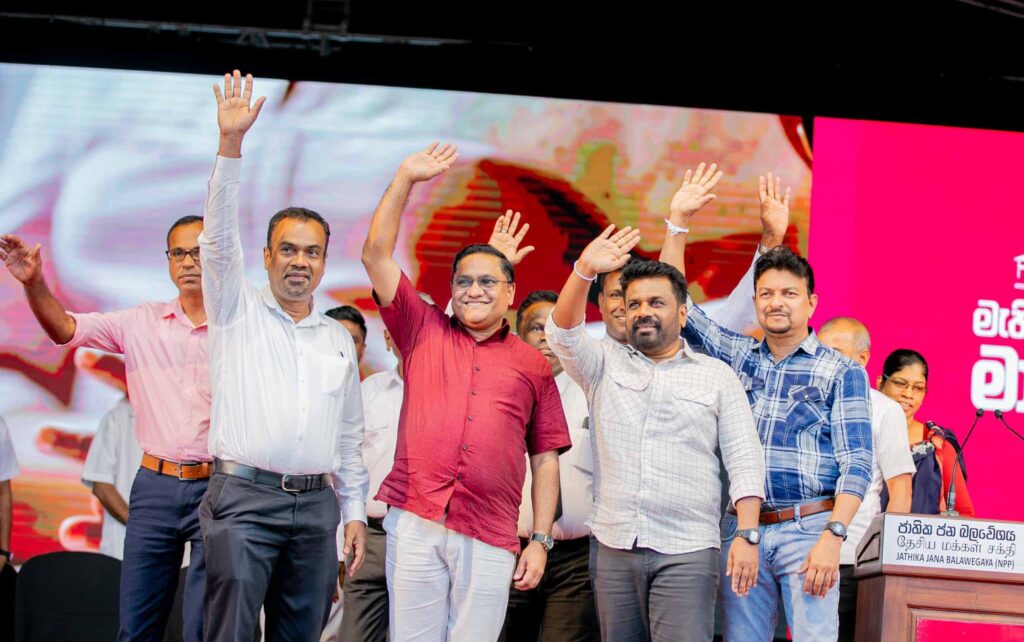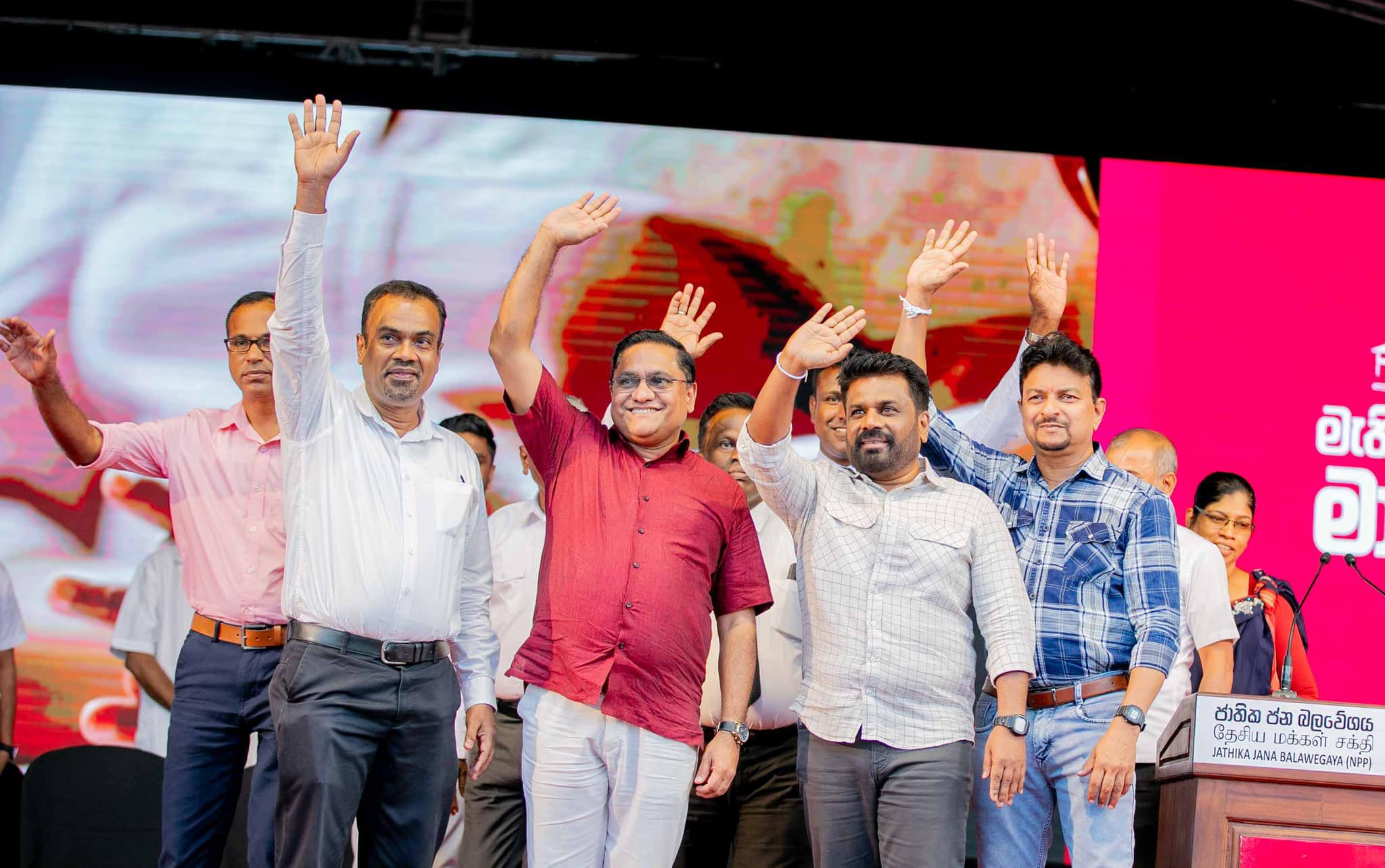පොදු වරදකාරිත්වය පිළිබඳ මිථ්යාව: ‘රාණි’ කලාවේ ස්වරූපයෙන් සත්ය විකෘති කිරීමක් ලෙස
සංජය ජයසේකර විසිනි.
මෙය 2025 අප්රේල් 13 දින theSocialist.lk හි පලකෙරුණු “The Myth of Common Guilt: ‘Rani‘ as Perversion of Truth in the Form of Art” යන ලිපියේ සිංහල පරිවර්තනයයි.
මාර්තු 28 වැනි දා ඩේලි එෆ්ටී (Daily FT) පුවත්පතේ පළ වූ, “හඳගමගේ රාණි පිළිබඳ මගේ සිතුවිලි” යන ලිපියෙහි1, කලාකරුවෙක්, පුරාවිද්යාඥයෙක් සහ සංස්කෘතික විචාරකයෙක් වන ජගත් වීරසිංහ, අශෝක හඳගමගේ නව චිත්රපටය වන රාණි හි කේන්ද්රීය ප්රතිගාමී ප්රවාදය, විස්තීර්ණ, තාර්කික, සහ සුජාත කරයි. මෙම චිත්රපටයේ යටි ආඛ්යානය, කලාත්මක සියුම් බව සහ සෞන්දර්යාත්මක අර්ථ ව්යාකූලබාවයේ වේශයෙන්, ගැඹුරින්ම මතවාදීමය වශයෙන් ඉතිහාස මුසාකරනයට ලක් කිරීමක් නියෝජනය කරයි. මෙම ලිපිය ( විදුර මුණසිංහ විසින් මාර්තු 30 වැනි දින අනිද්දා පුව්ත් පතෙහි2 සිංහල බසින් පරිවර්තනය කොට පල කරන ලද) හරහා අධ්යක්ෂවරයාගේ කේන්ද්රීය යෝජනාව වීරසිංහ විසින් අනුමත කිරීම, ධනේශ්වර රාජ්යයේ අපරාධ සඳහා මතවාදී ක්ෂමාලාපකයින් ලෙස සේවය කරන මධ්යම පන්තික බුද්ධිමතුන් සහ ව්යාජ වම්මුන් අතර පුලුල් ප්රවණතාවයක සංකේතයකි.
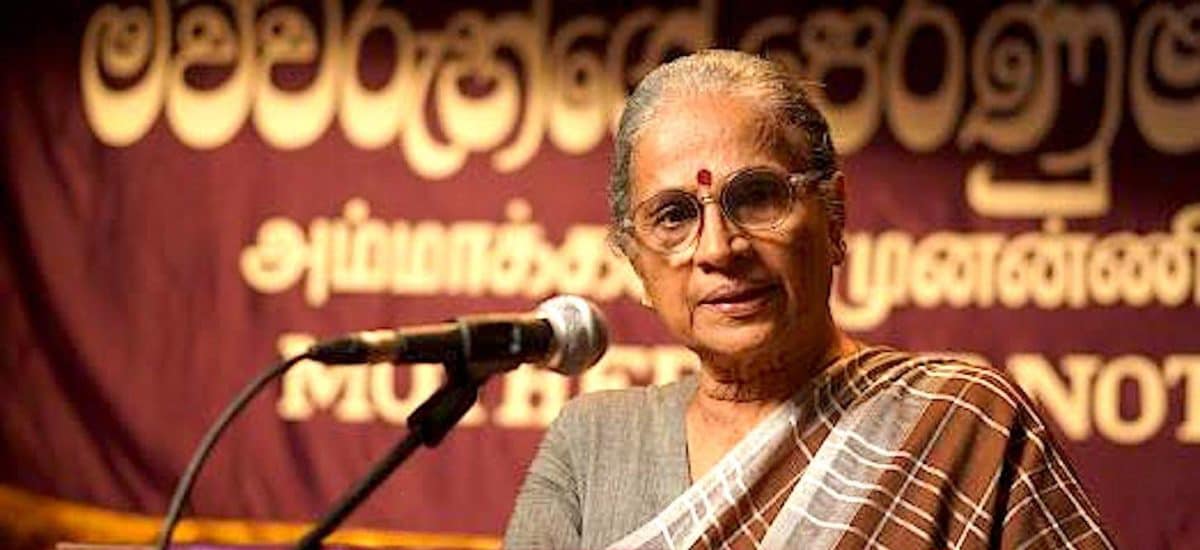
වීරසිංහ සහ චිත්රපටය ප්රවර්ධනය කරන මූලික ප්රවාදය නම්, 1988-90 කාලපරිච්ඡේදය තුළ සිදු කරන ලද ම්ලේච්ඡත්වය – බලහත්කාර අතුරුදහන් කිරීම්, රාජ්ය ඝාතක කණ්ඩායම්, සමූහ මිනීවල, වධක කඳවුරු සහ නීති විරෝධී ඝාතන මෙන්ම ජනතා විමුක්ති පෙරමුන (JVP) විසින් සිදු කරන ලද ෆැසිස්ට්වදී ප්රචණ්ඩත්වය – නිශ්චිත දේශපාලනය තීරණ, පංති අවශ්යතා සහ රාජ්ය සහ දේශපාලන පක්ෂ බලය පිළිබඳ සුවිශේෂිත ආයතන වල ප්රතිඵල නොවූ බවය. ඒ වෙනුවට ඒවා “ප්රචණ්ඩත්වය පද්ධතිමය සහ සාමාන්යකරණය වී ඇති” සමාජයක ප්රතිඵලයක් විය. වීරසිංහ මෙසේ ලියයි: “දේශපාලන වාසි සහ ආත්ම ලාභය සඳහා” අත්තනෝමතික පාලන තන්ත්රයන් ම්ලේච්ඡත්වය පවත්වා ගෙන යෑම මගින්, “බලයේ සිටින්නන් විසින් ප්රචණ්ඩත්වය ක්රියාත්මක කරනු ලබනවා පමණක් නොව, සාමාන්ය පුරවැසියන් විසින් එය අභ්යන්තරීකරණය කර ගත්, පිළිගත් සහ ඊට සහභාගී වන පවා පරිසරයක් නිර්මාණය කරයි. එවැනි වාතාවරණයක් තුළ, නිහඬතාවය, භීතිය හෝ සදාචාරාත්මක සීමා ක්රමිකව හායනය වීම තුලින් සදාචාරාත්මක අවංකකම ඇති අය පවා හවුල්කාරී විය හැක.”
මෙම ව්යාජ-සමාජ විද්යාත්මක ප්රකාශය – ප්රචණ්ඩත්වය සමාජයේ ව්යුහය තුළම කාවැදී ඇති බව සහ මහජනයා විසින් සාමූහිකව එය ක්රියාත්මක කරවන බව – ගැඹුරු ප්රතිගාමී නිගමනයකට මග පාදයි: එම කාලපරිච්ඡේදයේ සිදුකළ අපරාධ, කිසිදු පන්ති භේදයකින් තොරව සියලු දෙනා විසින් දරනු ලබන හවුල් සදාචාරාත්මක වරදකි. මුලදී අවට පැතිරි භීෂණයේ නිෂ්ක්රීය නිරීක්ෂකයෙකු ලෙස නිරූපිත, නමුත් ක්රමයෙන් චිත්තවේගීයව හා මානසිකව පැටලෙන, චිත්රපටයට නම දුන් ප්රධාන චරිතය වන රාණි සහ ජවිපෙ ෆැසිස්ට්වාදයෙන් සහ රාජ්ය මර්දනයෙන් තම ජීවිතය ගැන භීතියට පත් කරන ලද අනෙකුත් සෑම අනාරක්ෂිත ග්රාමීය මිනිසෙක් හා ගැහැනියක්, කම්කරුවෙක් හා රැකියා විරහිත තරුණයෙක් ම, අපරාධ සඳහා වග කිව යුතු සහ ස්ව-කැමැත්තෙන් සහභාගි වූවන් ලෙස පෙන්නුම් කෙරේ.
මෙම සදෝශීබාවය සදාචාරාත්මක වී ද, දේශපාලනික වී ද, නැතිනම් ඒ දෙකම වී ද? චිත්රපටයේ අධ්යක්ෂකවරයා සමග පැහැදිලිවම බෙදා හදාගත් ඇඟවුමක් වන සදාචාරාත්මක වරදක් ජනතාවට පැවරීමට වීරසිංහ අදහස් කරන බවට කිසිදු සැකයක් ඉතිරි නොවන අතර, මෙම අශිෂ්ට න්යාය දේශපාලන වගවීම දරන්නේ කවුරුන්ද යන්න සොයා යෑම කෙරෙහි (විචාරී) ප්රේක්ෂකයා පොලඹවනු ලබයි. දැන් අප අභිමුව ඇති ප්රශ්නය නිශ්චිතවම එයයි. චිත්රපටය සහ ඒ පිළිබඳ අධ්යක්ෂවරයාගේ භක්තිවන්ත ක්ෂමාලාපකයෝ “සාමාන්ය” ජනතාව මත වරද පටවති. දේශපාලන වගකීම සදාචාරාත්මක වරදකාරිත්වය පසුපස එයි. එහි ප්රතිඵලයක් වශයෙන්, පීඩිතයන් පීඩකයාට සමාන කර, බලාපොරොත්තු රහිත, අරාජික, ඓතිහාසික හෝ විද්යාත්මක පදනමකින් තොර සමාජයක් පිළිබඳ දැක්මක් ඇති කරයි. මෙම ප්රවේශය රළු ලෙස අනඓතිහාසික, ධාරණාවාදී සහ අවිද්යාත්මක වන අතර, එය නිශ්චිත පන්ති අවශ්යතාවක් සඳහා සේවය කරයි.
භීෂණයේ ධනේශ්වර රාජ්ය ඒජන්තයින්, එහි දේශපාලන නායකත්වය, මිලිටරි-බුද්ධි යන්ත්රය සමග ජවිපෙ නොමග යවන ලද කේඩරය සමාන කර ඇති අතර, මෙම පරස්පර විරෝධී බලවේග “සාමාන්ය පුරවැසියන්ගේ” සමජාතීය සමාජයක් ගොඩ නගමින් දුප්පතුන් හා වැඩකරන ජනතාව සමග එකම තලයක තබා ඇත. ඔවුන් සියල්ලන්ම සදාචාරාත්මකව සහ වගවිභාගයක් නැතිව ම නිශ්චිත හැඩයක් නැති සහ පන්ති විරහිත “අපි” බවට දියවී ඇත. වීරසිංහ සඳහන් කරන චිත්රපටයේ අවසාන අතුරු කථාව මෙම යෝජනාව මත පදනම් වී ඇති අතර, තම චිත්රපටය නරඹන්නන් විසින් විකල්ප ආඛ්යානය ලෙස කියවමින් ඔවුන් විසින් බැස ගැනීමට අධ්යක්ෂවරයාට අවශ්ය කල නිගමනයට, මග පාදයි: රිචඩ් ද සොයිසා ඝාතනය අනිවාර්යයෙන්ම හිටපු ජනාධිපති ආර්. ප්රේමදාසගේ නියෝගය මත සිදු වූවක් නොවේ, නැතහොත් එය ඔහුගේ හෝ පාලක පන්තියේ අවශ්යතාවයන්ට සේවය කළේ නැත. මෙය රාජ්යයේ දේශපාලන නායකත්වය කොක්කෙන් (චෝදනා වලින්) ගලවා ගනිමින්, එම යුගයේ සිදු වූ තවත් බොහෝ සැකකටයුතු ඝාතන සහ පැහැරගැනීම් පිළිබඳව අවිනිශ්චිත බවක් ඇති කරවන ඈවර කිරීමේ යෝජනාවකි.
අවසානයේදී, වීරසිංහ කියා සිටින පරිදි ඊනියා ‘ප්රබන්ධය’ මගින් නරඹන්නාට ගැඹුරට කිමිදීමට හැකියාව ලබා දෙන, ‘යටින් පවතින සමාජ හා දේශපාලන යථාර්ථයන් පිළිබඳ වඩාත් පුළුල් හා ස්ථර ගවේෂණය’, කඩා පාත් වන්නේ මෙතැනටය.
එවැනි දේශපාලන රාමුවක් අලුත් දෙයක් නොවේ. එය ධනේශ්වර හා සුලු ධනේශ්වර ඉතිහාස ලේඛනයේ නැවත නැවතත් මතු වී ඇති අතර එහිදී රාජ්ය අපරාධ – ජන සංහාර, යුද්ධ, සමූල ජන ඝාතන- සඳහා වගකීම “සමාජය” හෝ “මානව ස්වභාවය” වෙත විතැන් කරනු ලැබේ. එක් ප්රමුඛ ඓතිහාසික සාදෘශ්යයක් වන්නේ, ඩැනියෙල් ගෝල්ඩ්හාගන් (Daniel Goldhagen) ගේ හිට්ලර්ගේ සහභාගී අලුගෝසුවෝ: සාමාන්ය ජර්මානුවන් සහ හොලෝකෝස්ට්ය (1996) (Hitler’s Willing Executioners: Ordinary Germans and the Holocaust (1996) කෘතියයි. හොලෝකෝස්ට්ය ජර්මානු අධිරාජ්යවාදයේ සහ නාසි තුන්වන රයික ෆැසිස්ට් රාජ්යයේ ඓතිහාසිකව වර්ධනය වූ දේශපාලන වැඩපිළිවෙලක ප්රතිඵලයක් නොව, ජර්මානු ජනතාව අතර ගැඹුරින් මුල් බැසගත්, නෛසර්ගික යුදෙව් විරෝධීවාදයක ප්රතිඵලයක් බව විකාර සහගත ලෙස එය කියා සිටියේය2. මේ අනුව, “සාමාන්ය” ජර්මානුවන් මිලියන හයකට අධික යුදෙව්වන් සමූලඝාතනය කිරීමේ ‘අවසාන විසඳුමේ’ කැමැත්තෙන් හවුල්කරුවන් විය. හිට්ලර් මෙම මතවාදයේ අවසාන ක්රියාත්මක කරන්නා පමණි. මෙම මාරාන්තික ඉතිහාසය විකෘති කිරීම සාවධානී ඉතිහාසඥයින් විසින් පුලුල් ලෙස අපකීර්තියට පත් කර ඇත්තේ, එහි කාරණාමය සාවද්යතාවය නිසා පමණක් නොව, උසුලන ප්රතිගාමී දේශපාලන ඇඟවුම් නිසා ය.3
වීරසිංහ ඔහුගේ ප්රකාශ සනාථ කිරීම සඳහා කිසිදු සමාජ විද්යාත්මක හෝ ඓතිහාසික පර්යේෂණ ඉදිරිපත් නොකරයි – චිත්රපටය නිර්මාණය කිරීමට පෙර බැරෑරුම් විමර්ශනයක් සිදු නොකළ බව පිළිගන්නා අධ්යක්ෂවරයා ද එසේ නොකරයි. කෙසේ වෙතත්, බරපතළ ආනුභවික පදනමක් නොමැති ඇතැම් මනෝවිද්යාත්මක සහ සමාජ විද්යාත්මක න්යායන් හරහා සමාන තර්ක ජාත්යන්තරව ඉදිරිපත් කර ඇත. මේවා අතර ප්රධාන වන්නේ ස්ටැන්ලි මිල්ග්රම් (Stanley Milgram) සහ පිලිප් සිම්බාඩෝගේ (Philip Zimbardo) අධ්යයනයන් වන අතර, ඔවුන්ගේ අධිකාරීත්වයට කීකරු වීම සහ සිරගෙවල් අනුකාරක පරිසරයන් පිළිබඳ අදාළ පර්යේෂණ පුළුල් ලෙස උපුටා දක්වා ඇත්තේ සාමාන්ය පුද්ගලයන් පද්ධතිමය පීඩනය යටතේ කුරිරු ක්රියාවන්ට හවුල් විය හැකි බවට යෝජනා කිරීමටය. අධ්යයනයන් දෙකම ක්රමවේද අඩුපාඩු, සදාචාරාත්මක උල්ලංඝනයන් සහ ප්රතිනිෂ්පාදනය පිළිබඳ ගැටළු සඳහා ධාරිත (නිරන්තර) විවේචනයට ලක්ව ඇත. වඩාත් වැදගත් දෙය නම්, ඔවුන්ගේ ක්ෂණික පර්යේෂණාත්මක සන්දර්භයෙන් වියුක්ත කර, මහජන දේශපාලන ප්රචණ්ඩත්වය වැනි සංකීර්ණ සමාජ සංසිද්ධීන් වෙත අවිවේචනාත්මකව යෙදෙන විට, මෙම න්යායන් එක්තරා ආකාරයක මනෝවිද්යාත්මක නියතිවාදයක් බවට පරිවර්තනය වේ. ඒවා, ඓතිහාසික සිදුවීම් හැඩගස්වන පන්ති බලවේග සහ දේශපාලන වැඩසටහන් වසං කර, ඒ වෙනුවට දක්ෂිනාංශික ව්යාජ විද්යාත්මක ආඛ්යානයක් වන මානව ස්වභාවයේ නොවැළැක්විය හැකි ප්රතිපලයක් වන කුරිරුකම් හෝ විසිරි සමාජ සම්මතයන් හේතු ලෙස ඉදිරිපත් කරමින්, රාජ්යය සහ පාලක ප්රභූව දේශපාලන වගකීමෙන් නිදහස් කරති.
ශ්රී ලාංකීය සන්දර්භය තුළ මෙම තර්කය විශේෂයෙන් ප්රතිගාමී ප්රතිවිපාක ඇති කරයි. එය, 1983 දෙමළ ජනයාට එරෙහි සංහාරයට සහ අවසානයේ 2009 මුල්ලිවයික්කාල්හි සිදු වූ ජන සංහාරයට සිංහල බහුතරය සාමූහිකව වගකිව යුතු බවට මතයක් ගෙන එයි. රටේ මධ්යම පන්තියේ කොටසක් මෙම මතවාදය දරා සිටී. එය ව්යාජ වාම පෙරටුගාමී සමාජවාදී පක්ෂයේ (FSP) නායක පුබුදු ජයගොඩ විසින් වරක් තියුණු ලෙස ප්රකාශ කළේය. ජාතිවාදය සිංහල “සමාජය” තුළ ගැඹුරින් මුල් බැස ඇති බව ඔහු කියා සිටියේ4, සංකීර්ණ දේශපාලන සංසිද්ධීන් ගැටුම්කාරී පන්තිවලින් යුත් සමස්ත ජනවාර්ගික කණ්ඩායම්වල වියුක්ත සදාචාරාත්මක අසාර්ථකත්වයක් බවට ඌනනය කරමිනි5. මෙය විද්යාත්මක නොවන සහ ඓතිහාසිකව අසත්යයක් පමණක් නොව, ඒකාබද්ධ අරගලය වැළැක්වීම සඳහා කම්කරු පන්තිය වාර්ගික රේඛා මත බෙදීමට ජාතිවාදය ගසාකන ධනේශ්වර රාජ්යයේ සහ ස්වෝත්තමවාදී බලවේගවල අත ශක්තිමත් කරයි.
මාක්ස්වාදය ආරම්භ වන්නේ සදාචාරවාදයෙන් නොව, සමාජ සම්බන්ධතා සහ ඓතිහාසික ක්රියාවලීන් පිළිබඳ සංයුක්ත විශ්ලේෂණයෙනි. 1988-90 කාලපරිච්ඡේදය පිළිබඳ ඕනෑම බැරෑරුම් තක්සේරුවක දී ආමන්ත්රණය කළ යුතු අත්යවශ්ය ප්රශ්න නම්: ජවිපෙ නායකත්වය දුන් කැරැල්ලට සහ එහි ෆැසිස්ට් ක්රම වලට අදාල වෛෂයික හේතු මොනවාද? මර්දනයට සම්බන්ධ වූ පන්ති බලවේග මොනවාද? මෙම ප්රචණ්ඩත්වය නිපදවූ සමාජ අර්බුදය අවුලුවාලීමේදී අධිරාජ්යවාදය, ජාත්යන්තර මුල්ය අරමුදල ද්සහ ශ්රී ලංකා ධනේශ්වරයේ භූමිකාව කුමක්ද? සියල්ලටත් වඩා, ජවිපෙට සහ ධනේශ්වර රාජ්යයට එරෙහිව කම්කරු පන්තිය බලමුලු ගැන්විය හැකි විකල්ප විප්ලවවාදී නායකත්වයක් තිබුනේද?
ජවිපෙ නැගිටීම ඉබේ පුපුරා ගිය උමතුවක් හෝ “ප්රචණ්ඩ සංස්කෘතියක” නොවැළැක්විය හැකි නිෂ්පාදනයක් නොවීය. එය මතුවූයේ පශ්චාත්-විජිත ධනේශ්වරයේ අසාර්ථකත්වයේ සහ ධනේශ්වර ශ්රී ලංකා නිදහස් පක්ෂය (ශ්රීලනිප) සමග පන්ති සහයෝගීතා සභාගයකට ඇතුල් වූ 1964 දී ලංකා සමසමාජ පක්ෂය (ලසසප) පාවාදීම තුල මුල් බැසගත් ගැඹුරු සමාජ අර්බුදයකිනි. මෙම පාවාදීමෙන් ඉක්බිතිව, පාර්ලිමේන්තු වම ගැන කලකිරුණු සහ ජේ.ආර්. ජයවර්ධන තන්ත්රයේ ආර්ථික ලිබරල්කරණ ප්රතිපත්ති මගින් විනාශයට පත් වූ දස දහස් ගනන් ග්රාමීය තරුනයෝ ජවිපෙ රැඩිකල් කයිවාරුවලට ඇදී ගියහ.
ජනතා විමුක්ති පෙරමුණ එහි ජනතාවාදී (populist) ඉරියව්ව තිබියදීත්, කිසිවිටෙක මාක්ස්වාදී සංවිධානයක් නොවීය. එය පන්ති අරගලය ප්රතික්ෂේප කර, හතරවන ජාත්යන්තරයේ ජාත්යන්තරවාදය ඉවත දැමූ අතර, සුලු ධනේශ්වර ජාතිකවාදය සහ අවදානම්සහගත අත්හදා බැලීමේ (adventurist) ත්රස්තය මත විශ්වාසය තැබීය. 1987-89 දී එය කම්කරු පන්තිය සහ මධ්යම පන්තිය අඩපණ කළ ඝාතන හා ෆැසිස්ට් ප්රචණ්ඩත්වයේ ව්යාපාරයක් දියත් කළේය. රාජ්යයේ ප්රතිචාරය වූයේ කුරිරු මර්දන ව්යාපාරයකි. ඝාතක කණ්ඩායම්, බටලන්ද වැනි වධ කඳවුරු සහ රාජ්ය අනුග්රහය ලත් ත්රස්තය විසින් තරුණ තරුණියන් 60,000කගේ ජීවිත බිලිගත්තේය.
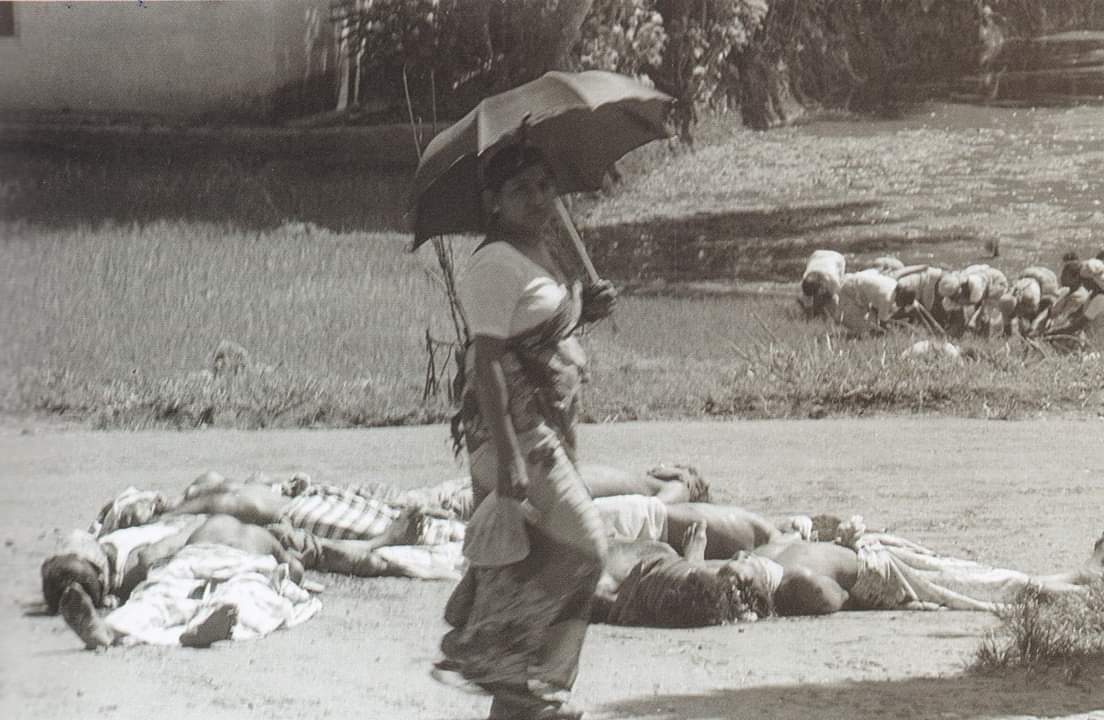
මෙය සමාජයක සාමාන්යකරණය කළ “ප්රචණ්ඩත්වයේ දෘෂ්ටිවාදයක්” පිළිබඳ කාරණාවක් නොවේ. එය පුද්ගලික දේපල ආරක්ෂා කිරීමට, කම්කරු පන්තිය බිය ගැන්වීමට සහ ධනේශ්වර පාලනය රැක ගැනීමට ධනේශ්වර රාජ්යය විසින් ඉහල සිට ගෙන ගිය පන්ති යුද්ධයකි. මේ සඳහා ඉඩ ප්රස්ථාව සැලසුනේ, පැරැණි වමේ පාවාදීම් විසින් නිර්මිත දේශපාලන රික්තකය සහ කම්කරු පන්තිය සහ ගම්බද දුගීන් සුලු ධනේශ්වර ජවිපෙ සහ අනෙකුත් ස්ටැලින්වාදී සහ මාඕවාදී සංවිධානවල ග්රහණයෙන් දේශපාලනිකව බිඳ දමා විකල්ප මහජන නායකත්වයක් ගොඩනැගීමට සමාජවාදී සමානතා පක්ෂයේ (සසප) පූර්වගාමියා වූ විප්ලවවාදී කොමියුනිස්ට් සංගමයට (විකොස) නොහැකි වීමය.
කෙසේ වෙතත්, ජවිපෙ ෆැසිස්ට් ප්රචණ්ඩත්වයට සහ රාජ්ය ත්රස්තවාදයට විරුද්ධ විය හැක්කේ සමාජවාදී ජාත්යන්තරවාදී වැඩපිලිවෙලක් මත කම්කරු පන්තිය ස්වාධීනව දේශපාලනිකව බලමුලු ගැන්වීමෙන් පමණක් බව අවධාරනය කලේ, කම්කරු පන්තියේ ලෝක පක්ෂය වන හතරවන ජාත්යන්තරයේ ජාත්යන්තර කමිටුවේ (හජාජාක) ශ්රී ලංකා ශාඛාව වන විකොස පමනි. 1988 නොවැම්බරයේදී, කම්කරු පන්තියේ ස්වාධීන බලය බලමුලු ගැන්වීම සඳහා, රාජ්ය මර්දනය සහ ජවිපෙ ෆැසිස්ට්වාදය යන දෙකටම එරෙහිව සටන් කිරීම සදහා වහාම ගත යුතු ප්රායෝගික පියවරක් ලෙස කම්කරු පන්ති සංවිධානවල එක්සත් පෙරමුණක් ඉල්ලා සිටියේය. මෙම ප්රයත්නයට සහාය දෙනවා වෙනුවට ලසසප, කොමියුනිස්ට් පක්ෂය (කොප), නව සමසමාජ පක්ෂය (නසසප) සහ ලංකා කම්කරු කොංග්රසය (සීඩබ්ලිව්සී), ජවිපෙට එරෙහිව ඔවුන්ව සන්නද්ධ කළ යූඑන්පී පාලනයේ භීෂණය සමඟ පෙලගැසී ගත්හ. මෙම පාවාදීම දකුණේ ග්රාමීය දුප්පතුන් මත මහජන මර්දනය මුදා හැරීමට සහ දෙමළ ජනතාවට එරෙහිව එහි වර්ගවාදී යුද්ධය දියත් කිරීමට රාජ්යයට සහාය විය.
සමකාලීන තාරුණ්යය “මෙම ස්ථාපිත රාමුවල කෙළවරටම තල්ලු කිරීමට” උත්සාහ කරන වීරසිංහ වැන්නවුන්ගේ ඓතිහාසික ශේෂ පත්රයේ මෙම ගතිකතාවයන් කිසිවක් අන්තර්ගත නැත.
අද, ජවිපෙ/එන්පීපී තම ගැලවුම්කරුවා ලෙස අනුමත කර ඇති පාලක පන්තියේ පලිහක් ලෙස යලිත් වරක් ව්යාජ වම ඉස්මතු වී ඇත. ජනතා විමුක්ති පෙරමුණ ප්රමුඛ ජාතික ජන බලවේගයේ (ජාජබ) ආන්ඩුව සිය පාර්ලිමේන්තු තත්වය භාවිතා කරන්නේ අතීතයේ සිදු වූ යුද අපරාධ හෙළි කිරීමට හෝ නඩු පැවරීමට නොව ඒවා වළ දැමීමට ය. දශක දෙකකට වැඩි කාලයක් දූවිලි කමින් තිබූ බටලන්ද කොමිෂන් සභා වාර්තාව සභාගත කිරීම සහ විවාද කිරීම පිළිබඳ එහි සංදර්ශන ජාමූඅ කප්පාදු පියවරයන්ගෙන් මහජන අවධානය වෙනතකට යොමු කිරීම සඳහා වූ නරුම අභිනයකි. එන්පීපීය, හමුදාවට, එජාපයට හෝ අධිරාජ්යවාදයේ අවශ්යතාවලට අභියෝග නොකරීම සදහා වෛෂයිකව ස්ථානගතව ඇත. 1988-90 අපරාධ සම්බන්ධයෙන් ඕනෑම සැබෑ ගනන් බැලීමක් රාජ්යය පමනක් නොව ජවිපෙ දේශපාලනයම හෙලිදරව් කරනු ඇතැයි එය බිය වේ.
වීරසිංහ වැනි චරිත විසින් ප්රවර්ධනය කරන, රාණි තුලින් ඉදිරිපත් කරන ,”පොදු වරද” ප්රවාදය කම්කරු පන්තිය සහ ගම්බද දුගීන් ප්රතික්ෂේප කල යුතුය. ඔවුන් යුක්තිය ඉල්ලා සිටිය යුත්තේ චිත්තවේගීය සංහිඳියාව මත නොව, ඓතිහාසික සත්යය සහ දේශපාලන වගවීම මත ය7.
ධනේශ්වර රාජ්යය තුළ මේ දෙකම කළ නොහැකි ය. අවසානයේ අධිරාජ්යවාදයේ ග්රහණය බිඳ දැමීමටත්, ත්රස්තවාදයේ උරුමය පෙරලා දැමීමටත්, සූරාකෑමට එරෙහි පොදු අරගලයක පදනම මත පීඩිතයන් – සිංහල, දෙමල සහ මුස්ලිම් – එක්සත් කිරීමටත් කම්කරු පන්තියේ විප්ලවවාදී සමාජවාදී ව්යාපාරයක් ගොඩනැගීම ඒ සඳහා අවශ්ය වේ.
චිත්රපටයේ ප්රවාදය සහ එය විස්තීර්ණ කරන වීරසිංහගේ ලිපිය, ඉතිහාසයේ සෞන්දර්යාත්මක දෘෂ්ටිවාදී මුසාකරනයක් මෙන්ම ප්රතිගාමී ඓතිහාසික සංශෝධනවාදයක් “විවේචනාත්මක ප්රත්යවේක්ෂණය (ආවර්ජනය)” යන ඇඳුමින් යලි සන්නාම කිරීමක් අන්තර්ගත කර ගනී. කලාවේ කාර්යය වන්නේ, එය ප්රගතිශීලී වීමට නම්, මෙම සත්යයන් වසන් කිරීම නොව ඒවා පැහැදිලි කිරීමයි. මෙම අති මූලික කාර්යයේදී රාණි අසමත් වේ. එය ඉතිහාසය ධාරණවාදයෙන්ද, පන්ති විශ්ලේෂණය ව්යාජ විද්යාවෙන් ද, විප්ලවවාදී පැහැදිලිකම ප්රතිගාමී ව්යාකූලත්වයෙන් ද විස්තාපනය කරයි.
- My Thoughts on Handagama’s Rani, Jagath Weerasinghe, Daily FT on March 28, 2025. <https://www.ft.lk/columns/My-thoughts-on-Handagama-s-Rani/4-774887> ↩︎
- Anidda, February 2, 2025, A discussion with Ashoka Handagama by Upali Amarasinghe, p19. ↩︎
- ‘[A]ntisemitism moved many thousands of “ordinary” Germans—and would have moved millions more, had they been appropriately positioned—to slaughter Jews. Not economic hardship, not the coercive means of a totalitarian state, not social psychological pressure, not invariable psychological propensities, but ideas about Jews that were pervasive in Germany, and had been for decades, induced ordinary Germans to kill unarmed, defenseless Jewish men, women, and children by the thousands, systematically and without pity.’ Daniel Goldhagen, Hitler’s Willing Executioners: Ordinary Germans and the Holocaust, (New York: Alfred A. Knopf, 1996), p. 9. ↩︎
- The Myth of “Ordinary Germans”: A Review of Daniel Goldhagen’s Hitler’s Willing Executioners, David North (April 1997) in The Russian Revolution and the Unfinished Twentieth Century (2014). <https://www.wsws.org/en/special/library/russian-revolution-unfinished-twentieth-century/15.html> ↩︎
- <https://www.facebook.com/reel/3824881814291061?sfnsn=wa&mibextid=6AJuK9> ↩︎
- Race, class and social conflict in the United States, Niles Niemuth, SEP Summer School Lecture 2021, <https://www.wsws.org/en/articles/2021/09/06/race-s06.html> ↩︎
- Batalanda Slaughter Chambers and the Mass Graves: The class roots of crimes against the poor and the working class of Sri Lanka, Sanjaya Jayasekera, March 23, 2025, <https://www.thesocialist.lk/batalanda-slaughter-chambers-and-the-mass-graves-the-class-roots-of-crimes-against-the-poor-and-the-working-class-of-sri-lanka/> ↩︎
පොදු වරදකාරිත්වය පිළිබඳ මිථ්යාව: ‘රාණි’ කලාවේ ස්වරූපයෙන් සත්ය විකෘති කිරීමක් ලෙස Read More »

